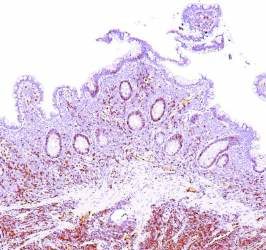FROM MULTIPLE SCLEROSIS JOURNAL
Patients with multiple sclerosis treated with interferon-beta or glatiramer acetate who are aged 45 and over, and have no evidence of clinical disease activity for more than 4 years, have a high likelihood of remaining relapse free after stopping treatment, research showed.
The study, conducted by Gabriel Bsteh, MD, of the department of neurology at the Medical University of Innsbruck (Austria) and his colleagues, provides some evidence in the absence of randomized trials that may help guide discussions with patients – particularly those who have not had a relapse in a while – when they ask if they could discontinue disease-modifying treatment (DMT).
The current study involved 221 patients with relapsing-remitting multiple sclerosis (RRMS) who discontinued DMT after more than a year and had documented follow-up at 2 years ( Mult Scler. 2016 Oct 20. doi: 10.1177/1352458516675751 ).
After a median follow-up period of 3.8 years, 98 patients (44.3%) had a relapse. Confirmed disability progression occurred in 46 patients (20.8%), and 15 patients (6.8%) converted to secondary progressive multiple sclerosis.
The independent predictors of absence of relapse after discontinuing treatment included age 45 years or older at discontinuation (HR = 0.47; confidence interval, 0.23–0.95; P = .038), absence of relapses for 4 or more years on DMT before discontinuation (HR = 0.29; CI, 0.10–0.82; P = .020), and absence of contrast-enhancing lesions (HR = 0.46; CI, 0.28–0.78; P =.004). A combination of age 45 years or older and absence of relapses after 4 or more years on DMT was associated with a very low risk of having a relapse after discontinuation, regardless of MRI results (HR = 0.06; CI, 0.01-0.44; P less than .001).
Higher Expanded Disability Status Scale (EDSS) scores at discontinuation, age older than 45 years at discontinuation, and longer disease duration were the only significant independent predictors of disability progression after discontinuation, irrespective of the presence of relapses on DMT or gadolinium-enhancing lesions.
“This underlines the concept of a window of opportunity in the treatment of MS, in the sense that once a certain extent of disability is reached, the impact of relapses, and therefore the effect of anti-inflammatory treatment, are drastically reduced,” the investigators wrote.
The study is limited because of its observational retrospective nature, but the research team said their results emphasized the importance of regular, thorough clinical evaluation of patients with RRMS. “While MRI may have a role in aiding decision making regarding DMT discontinuation, our data clearly show that demographic factors and clinical monitoring go a long way in risk stratification,” they wrote.
The authors received no financial support for the study, but several of the authors reported participating in meetings or receiving honoraria from several pharmaceutical companies.




